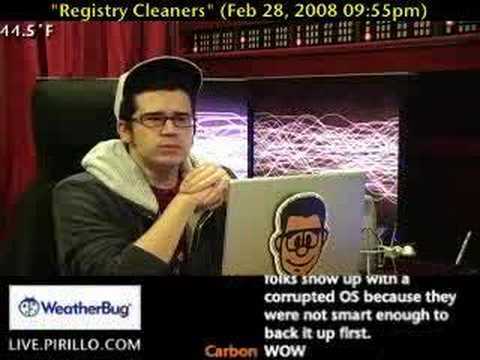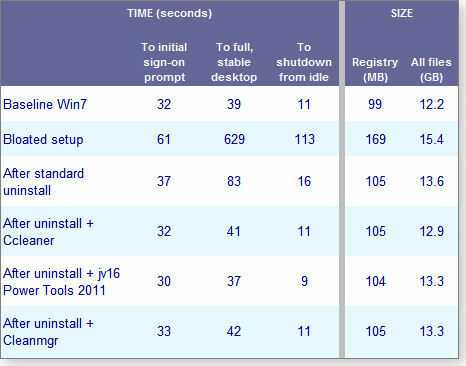No, even if the registry was massively bloated there would be little impact on the performance of anything other than exhaustive searches (ed. of the registry itself).
is a quote (in the comments) by Mark Russinovich, who is a widely recognized expert in Windows operating system internals as well as operating system architecture and design.
Up to this point nobody has proven him wrong with extensive unbiased tests, that involve multiple reboots, multiple computers, different sets of software and can easily be reproduced. It's one of those myths that get debunked amongst many other so-called performance improvement tips, simple because nobody has even reproducible claimed that the cleaning on its own improves performance. Because really, removing entries that aren't even touched while your PC boots is not going to have much effect.
What mainly slows down your PC are AREs (automatically running entries) which you can clean with AutoRuns, this tool list the following: Logon Applications, (Internet) Exprorer extensions, Scheduled Tasks, Services, Drivers, Codecs, Boot Execution Code, Image Hijacks, AppInit and KnownDLLs, WinLogon, Winsock Providers, Print Monitors, LSA Providers, Network Providers and Sidebar Gadgets.
Over time, these applications themselves load more information which is what makes software like Disk Cleanup come to existence. CCleaner these days does quite well on enumerating most of the files of most of the software you have, however you will want to stay away from its registry cleaning capabilites with have a higher chance of breaking something than giving you any performance benefits.
The most well known locations where this happens are the Temporary folders of Windows as well as caches and history files and folders of your browser, these are files and folders that are actively used and thus play a big role in your performance. Other files may include those referenced to by the registry or by configuration files on your computer. Keeping the amount of software and files / folders on your system to those that you actually might help as well.
So, to summarize:
Cleaning the registry does not make the registry smaller, but leaves blank space behind.
Compacting the registry to remove blank spaces can be done with NTREGOPT as administrator.
The registry itself does not become slower as its size grows.
Entries in the registry can affect the performance of your installation, mostly the AREs entries.
Files on your system that are referenced by the registry or configuration also play a big role.
Make sure you regularly get rid of viruses, software you don't need and cleaning out old files.
Here's what Chris Pirillo from Lockergnome (famous for his TECH on CNN) has to say:



1I haven't booted into Windows in months for this very reason. – Gareth Davidson – 2010-11-19T13:52:31.433
2XP w/SP1 and no AV software, smokin' fast....its all about what is added after the clean install that slows a system down. – Moab – 2010-11-19T14:20:19.253
@Gaz: What in the world? You are missing out. – Flotsam N. Jetsam – 2010-11-19T16:19:52.030
9I have a corporate managed desktop running WinXP and McAfee. It is perfectly "clean" with only MS Office and Firefox installed. Those are run about once a month. Prior to corporate management and McAfee updates it was smoking fast to start-up and run apps. After a year, with no additional software installed, and practically no browsing... certainly no viruses. It takes minutes to fully startup and Office and even Firefox apps are so slow they are barely usable. I've experienced this degradation over time "phenomenon" with Windows systems for the last decade regardless of usage patterns. – Michael Prescott – 2010-11-19T17:10:07.913
3@Flotsam, not really. If it wasn't for the need to connect to customer VPNs using softkeys, I would have deleted my Windows partition years ago when I transitioned from being a Windows power user to a free software hacker. – Gareth Davidson – 2010-11-20T16:44:21.657
tl;dr: too much crap – Ian Boyd – 2011-11-10T14:08:19.570
Windows 8.1/8 has a new feature that you can wipe the "program" part of your HD with a single button; you files are saved, but it will "refresh" the operating system and remove all programs/reset the registry. – Anonymous Penguin – 2013-11-07T21:30:07.883